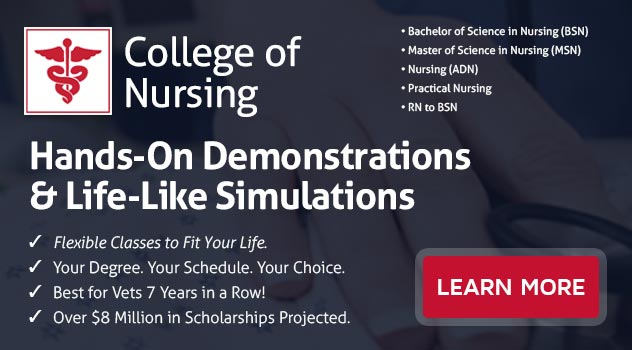Masters in Nursing Specialties: What is Right For Me?
If you already have your bachelor of science in nursing degree (BSN), you may be thinking of the next steps. This next move usually entails earning a master's degree. An MSN could open many doors, particularly to certain nursing specialties -- fields that require specialized, advanced education.
These specialties represent the next steps toward a more responsible position, possibly entailing management ability. Here are some of the hottest specialties in the nursing profession today.
Top Nursing Specialties
- Psychiatrist nurse practitioner
- Certified nurse practitioner
- Nurse researcher
- Nurse educator
- Gerontologist nurse practitioner
- Nurse midwife
- Critical care nurse
- Nurse anesthetist
- Pain management nurse
- Pediatric nurse practitioner
- Neonatal nurse
- Nurse attorney
- Health policy nurse
- Clinical trial nurse
- Informatics nurse
- Infection control nurse
- Diabetes nurse
- Occupational nurse
- Long-term care nurse
- Nurse manager
- Medical surgical nurse
- Flight nurse
With a master's degree, you could qualify for any of these positions.
Steps Toward Specializations
But while basic patient care will continue to be the primary job for tomorrow's nurses, the next generation of nurses is expected to be more educated. As a result, most RNs are seeking or thinking about seeking a BSN if they don't already have one. And, most employers are already favoring the hiring of nurses with bachelor's degrees over those with just an associate degree, which is required for obtaining certification as a registered nurse.
Attaining a bachelor's degree gives the graduate an opportunity to gain valuable skills in advanced nursing, and is the logical step after the RN to specializing in areas such as those listed above.
But a BSN alone won't be enough to specialize in most of these fields. BSN programs are important for improving students' communication skills, their writing, and their research knowledge so they are well prepared for graduate school. BSN programs also provide experience in interdisciplinary course work, as the student focuses more intensely on the area of specialization. By the time students apply for graduate school, the nursing specialty should be well in their sights.
BSN programs focus on interdisciplinary course work, and strengthening their students' writing and research knowledge so graduates are better prepared for graduate school. Anyone who has aspirations of being a manager or nursing executive, a nurse educator or a nurse practitioner, or moving into such areas as advanced practice nurse (APRN) must have a graduate degree, and a BSN is the first step toward getting one.
Why Specialties Are Important
Many of the specialties listed above are emerging as medical research sheds new light on ways to treat illnesses, injuries, burns, aging issues, psychiatric disorders, and a host of other conditions. With new treatments, new medications, new technology, and new methods to address the conditions of many different types of patients, it's apparent that nurses will need more than general knowledge when providing advanced care.
While it's important to understand that the duties of those practicing these specialties sometimes overlap with those of a physician, and the practitioner sometimes works without direct supervision in some states, they are not considered the equivalent of doctors. However, their duties are considered a vital step in helping to extend better care to the expanding numbers of patients requiring attention. With a critical shortage of physicians throughout the U.S., practitioners of these specialties are helping to fill the gap.
Earning an MSN
If you already have your BSN from an accredited college, you're ready to take the next step. Fill out and submit an application to the program of your choice. Be sure to look into any undergraduate course work that you might be required to take for your master's degree. You will probably also need to include a resume detailing your work as a nurse, and proof of your nursing license.
Are you a BSN nurse interested in moving ahead? If you'd like to earn a Master of Science in Nursing Degree, ECPI University offers this program at an accelerated rate. For more information on this exciting opportunity, connect with a knowledgeable admissions professional today.
It could be the Best Decision You Ever Make!
DISCLAIMER – ECPI University makes no claim, warranty, or guarantee as to actual employability or earning potential to current, past or future students or graduates of any educational program we offer. The ECPI University website is published for informational purposes only. Every effort is made to ensure the accuracy of information contained on the ECPI.edu domain; however, no warranty of accuracy is made. No contractual rights, either expressed or implied, are created by its content.
For more information about ECPI University or any of our programs click here: http://www.ecpi.edu/ or http://ow.ly/Ca1ya.




